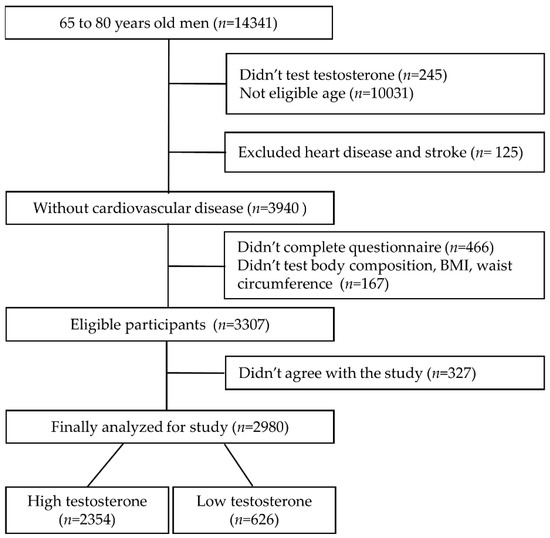How to Increase Testosterone Naturally
By Nelson Vergel
Author
Testosterone: A Man's Guide
There are several lifestyle, nutritional and other factors that can increase testosterone production by testicles in men. The degree of this increase has not been clearly quantified, but there is evidence that the following can help. Some men may require additional testosterone replacement therapy to increase blood levels of total testosterone above the 500 ng/dL that usually enables a man to feel testosterone's benefits (improved sex drive, energy, mental focus, tolerance to stress, etc). The following simple suggestions backed by science can increase average blood levels of testosterone in men by over 20 percent.
1- Sleep well. At least 7 -8 hours and keeping proper sleeping hours. For reference click here
2- Moderate alcohol consumption to no more than 2 drinks a day. Reference
3- Exercise for an hour, 3-4 times a week. Do not over train since this can decrease testosterone. Reference
4- Lower stress. Learn breathing exercises and set your phone up for alerts every 2 hours to remind you to take a deep breath.Reference
5- Some men may be deficient in zinc. Zinc is needed for proper testosterone production. 30-50 mg per day plus 3 mg of copper should be enough.Reference
6- Do not wear tight underwear. Let your testicles hang and cool off since high temperatures can affect sperm quality. Sleep in boxers or naked if you can to allow nocturnal blood flow and erections to your penis. It is nature's way to feed and regenerate your penis' tissues.
Reference
7- Lose weight if overweight. Probably the most effective way to increase testosterone Reference
8- Avoid pesticide exposure and do not heat up your food in plastic containers. Toxins can increase the conversion of testosterone to estradiol, a female based hormone.Reference
9- Have sex or masturbate. People who do tend to have higher testosterone. Even the use of Viagra has been associated with increased testosterone. Reference
10- Be aware that certain medications can decrease testosterone. These drugs include Ketoconazole, prednisone and corticoid steroids, anabolic steroids, Tagamet, Acutanetotyle
, Proscar, Propecia, chemotherapy, metformin, statins, ibuprofen, prostate cancer treatments, and others. Cocaine, excessive pot use, and other street drugs can also decrease testosterone.
Reference
Reference
Reference
If after all these changes your blood level of total testosterone is not above 400-500 ng/dL and you have symptoms of testosterone deficiency (lack of sex drive, fatigue, lack of mental focus, low tolerance to stress, etc), you may need to talk to your doctor about prescription options to increase your testosterone.
For more information: Do Testosterone Boosters Work?
Video: Testosterone production, action, and symptoms of hypogonadism
For a review of options, read Testosterone: A Man's Guide


By Nelson Vergel
Author
Testosterone: A Man's Guide
There are several lifestyle, nutritional and other factors that can increase testosterone production by testicles in men. The degree of this increase has not been clearly quantified, but there is evidence that the following can help. Some men may require additional testosterone replacement therapy to increase blood levels of total testosterone above the 500 ng/dL that usually enables a man to feel testosterone's benefits (improved sex drive, energy, mental focus, tolerance to stress, etc). The following simple suggestions backed by science can increase average blood levels of testosterone in men by over 20 percent.
1- Sleep well. At least 7 -8 hours and keeping proper sleeping hours. For reference click here
2- Moderate alcohol consumption to no more than 2 drinks a day. Reference
3- Exercise for an hour, 3-4 times a week. Do not over train since this can decrease testosterone. Reference
4- Lower stress. Learn breathing exercises and set your phone up for alerts every 2 hours to remind you to take a deep breath.Reference
5- Some men may be deficient in zinc. Zinc is needed for proper testosterone production. 30-50 mg per day plus 3 mg of copper should be enough.Reference
6- Do not wear tight underwear. Let your testicles hang and cool off since high temperatures can affect sperm quality. Sleep in boxers or naked if you can to allow nocturnal blood flow and erections to your penis. It is nature's way to feed and regenerate your penis' tissues.
Reference
7- Lose weight if overweight. Probably the most effective way to increase testosterone Reference
8- Avoid pesticide exposure and do not heat up your food in plastic containers. Toxins can increase the conversion of testosterone to estradiol, a female based hormone.Reference
9- Have sex or masturbate. People who do tend to have higher testosterone. Even the use of Viagra has been associated with increased testosterone. Reference
10- Be aware that certain medications can decrease testosterone. These drugs include Ketoconazole, prednisone and corticoid steroids, anabolic steroids, Tagamet, Acutanetotyle
, Proscar, Propecia, chemotherapy, metformin, statins, ibuprofen, prostate cancer treatments, and others. Cocaine, excessive pot use, and other street drugs can also decrease testosterone.
Reference
Reference
Reference
If after all these changes your blood level of total testosterone is not above 400-500 ng/dL and you have symptoms of testosterone deficiency (lack of sex drive, fatigue, lack of mental focus, low tolerance to stress, etc), you may need to talk to your doctor about prescription options to increase your testosterone.
For more information: Do Testosterone Boosters Work?
Video: Testosterone production, action, and symptoms of hypogonadism
For a review of options, read Testosterone: A Man's Guide
.jpg)
Last edited by a moderator:















